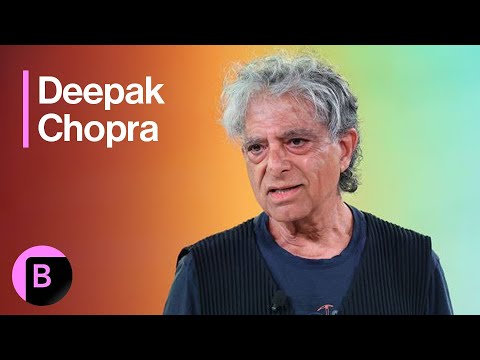Deepak Chopra highlights that while AI can enhance human understanding and spiritual growth, it lacks true consciousness and should be used responsibly to support inner well-being and collective evolution. He emphasizes the importance of integrating AI with mindfulness and compassion, advocating for wise leadership and embracing uncertainty to foster creativity, peace, and a better future.
Deepak Chopra discusses the impact of artificial intelligence (AI) on human and spiritual intelligence. He emphasizes that while AI can enhance our cognitive abilities and expand our understanding of reality, it does not possess self-awareness or consciousness. Chopra explores the idea that AI can facilitate contemplative inquiry and access to spiritual knowledge, helping individuals deepen their self-awareness and understanding of consciousness beyond death. He highlights the potential for AI to contribute to well-being, longevity, and a deeper grasp of spiritual truths, provided it is used thoughtfully.
Chopra reflects on the historical rapid technological advancements between 1887 and 1903, comparing them to the current evolution of AI, which is still relatively young but already transforming social, cultural, and biological evolution. He suggests that humanity is evolving into a new species through these technological changes, with neural networks and genes being activated by new knowledge. However, he warns that if misused, AI could also lead to extinction, underscoring the importance of responsible development and application of this technology.
Regarding artificial general intelligence (AGI), Chopra expresses skepticism about AI ever truly achieving consciousness, as consciousness involves subjective experience and feelings such as hunger, fear, or existential dilemmas. He believes AI will only simulate consciousness without genuinely experiencing it. He discusses the potential societal impacts of AI, including its role in enhancing creativity and access to knowledge, and sees it as a tool that can bring humans closer to spiritual texts and teachings, thereby fostering spiritual understanding and personal growth.
Chopra emphasizes the importance of integrating AI with inner well-being practices like meditation, mindfulness, and contemplative inquiry. He advocates for using AI to personalize spiritual techniques and facilitate inner journeys, helping individuals access deeper truths beyond the mind. He highlights that well-being is an inner journey that can be supported by AI, but ultimately depends on inner exploration and self-awareness. He also notes that AI can serve as a bridge to understanding ancient texts and spiritual teachings more deeply.
Finally, Chopra discusses the role of leadership and collective consciousness in shaping the future. He advocates for leaders to embrace technology, including AI, with a focus on peace, sustainability, and well-being. He warns against the dangers of excessive power and influence, which can lead to corruption and irrelevance. Chopra calls for embracing uncertainty as a source of creativity and innovation, emphasizing that humanity’s future depends on our collective ability to use technology wisely, foster compassion, and create a shared vision for a better world. He concludes by stressing that stress is a waste of imagination, and that creative opportunities often arise from challenging situations when approached with curiosity and compassion.
